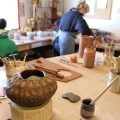PTE考生目前最大的问题之一就是练习题缺乏。除了有限的基本官方书(PLUS,Testbuilder, OG)之外,就没有题了。很多英语基础不是很扎实的同学很难找到练习材料。墨尔本文波雅思PTE培训学校专门为墨尔本,悉尼PTE考生准备了PTE练习的lecture 93篇。各位PTE同学可以练习阅读,练习记笔记技巧,可以练习复述,甚至可以练习describe image。废话少说,下面开始:
I’m sure almost every one of you looked at your watch or at a clock before you came to class today. Watches and clocks seem as much a part of our life as breathing or eating. And yet, did you know that watches and clocks were scarce in the United States until the 1850’s? In the late 1700’s, people didn’t know the exact time unless they were near a clock. Those delightful clocks in the squares of European towns were built for the public. After all, most citizens simply couldn’t afford a personal timepiece. Well into the 1800’s in Europe and the United States, the main purpose of a watch, which, by the way, was often on a gold chain, was to show others how wealthy you were. The word “wristwatch” didn’t even enter the English language until nearly 1900. By then the rapid pace of industrialization in the Unites States meant that measuring time had become essential. How could the factory worker get to work on time unless he or she knew exactly what time it was? Since efficiency was now measured by how fast a job was done, everyone was interested in time. And since industrialization made possible the manufacture of large quantities of goods, watches became fairly inexpensive. Furthermore, electric lights kept factories going around the clock. Being on time had entered the language—and life—of every citizen.
【生词摘录】
1. scarce: adj. 稀少的
2. delightful: adj. 令人愉快的
3. square: n. [C]广场
4. timepiece: n. [C]时钟,座钟
5. wristwatch: n. [C]手表
6. industrialization: n. [C]工业化,产业化
7. efficiency: n. [C]效率
8. inexpensive: adj. 便宜的,不贵重的
9. furthermore: adv. 此外,而且
墨尔本文波PTE个人微信号:wenbo_tv





